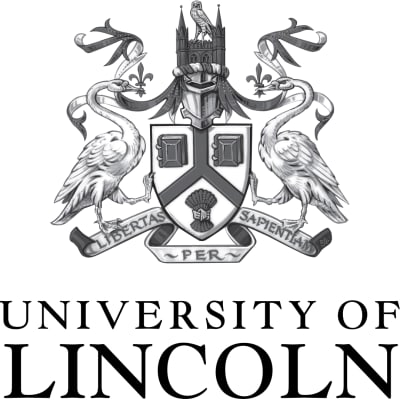
BSc (Hons) Chemistry with Mathematics
University of Lincoln

Key Information
Campus location
Lincoln, United Kingdom
Languages
English
Study format
On-Campus
Duration
3 years
Pace
Full time
Tuition fees
Request info
Application deadline
Request info *
Earliest start date
Request info
* late applications will be considered if suitable vacancies remain
Discover Lincoln Wherever You Are in the World
Our webinars, subject masterclasses, question and answer sessions, and student panel talks are a great way to discover what it is like to live and study at the University of Lincoln.
Introduction
Knowledge of advanced mathematics provides a key to understanding the diversity and complexity of the chemical world. This joint honours degree integrates these fundamental subjects, providing students with the chance to examine the relationship between the disciplines and the important roles they play in different contexts.
The chemistry curriculum on this programme has been devised to integrate the main sub-disciplines of chemistry effectively, relating physical chemistry concepts to aspects of organic and inorganic chemistry, and to the methods used for analysing substances. The programme provides the opportunity to gain a comprehensive knowledge of chemistry alongside subject-specific and generic skills with the aim of developing a strong understanding of how chemistry is applied to problems with a direct impact on society.
Chemistry at Lincoln is designed to produce employable graduates with a broad background in academic chemistry and significant experience in the application of chemistry in contexts relevant to society and industry.
"This information was correct at the time of publishing (July 2023)"
Admissions
Curriculum
How You Study
The course covers core chemistry subjects, which can include synthetic methodologies and molecular characterisation; laboratory techniques; molecular structure, bonding and mechanism; and electronic structure, spectroscopy, and reactivity in p-block compounds.
Throughout the programme, students may have opportunities to engage with industry professionals to develop professional practices that can enhance employability. Challenges based on industry-led, interdisciplinary projects are undertaken throughout the course with national and multi-national companies.
In mathematics, students are given the opportunity to gain knowledge in a variety of subjects including programming, computation and data analysis. Students are also encouraged to develop transferable skills in areas such as communications, problem-solving, and decision-making throughout their studies.
The course includes lectures, seminars, laboratory-based practical classes, and lectures from visiting scientists. Extensive small-group teaching and innovative team-based learning aim to create a supportive learning environment to help students train through practice and problem-based approaches.
First Year
- Calculus (Core)
- Chemistry Extension 1: Electronic Structure, Spectroscopy and Reactivity in p-Block Compounds (Core)
- Core Chemistry 1.1: Introduction to Energy, Change and Electronic Structure (Core)
- Core Chemistry 1.2: Molecular Structure, Bonding and Mechanism (Core)
- Practical Chemistry 1.1: Fundamental laboratory techniques (Core)
- Practical Chemistry 1.2: Introduction to synthetic methodologies and molecular characterisation (Core)
- Probability and Statistics (Core)
Second Year
- Chemistry Extension 2: Electronic Structure, Spectroscopy and Reactivity in d- and f-Block Compounds (Core)
- Core Chemistry 2.1: Stability, Structure and Mechanism in Molecular Systems (Core)
- Core Chemistry 2.2: Chemistry of Activated Systems and Radicals (Core)
- Differential Equations (Core)
- Industrial and Financial Mathematics (Core)
- Practical Chemistry 2.1: Organic synthesis, purification and advanced characterisation (Core)
- Practical Chemistry 2.2: Inorganic synthesis and structural methods (Core)
Third Year
- Core Chemistry 3.1: Defining Shape, Symmetry and Stereochemistry (Core)
- Core Chemistry 3.2: Heterogeneous Systems, Surfaces and Nanoscience (Core)
- Mathematics Project (Core)
- Practical Chemistry 3.1: Advanced techniques in IO-chemistry (Core)
- Structured project (Core)
† Some courses may offer optional modules. The availability of optional modules may vary from year to year and will be subject to minimum student numbers being achieved. This means that the availability of specific optional modules cannot be guaranteed. Optional module selection may also be affected by staff availability.
How You Are Assessed
The way students are assessed in this course may vary for each module. Examples of assessment methods that are used include coursework, such as written assignments, reports or dissertations; practical exams, such as presentations, performances or observations; and written exams, such as formal examinations or in-class tests. The weighting given to each assessment method may vary across each academic year. The University of Lincoln aims to ensure that staff return in-course assessments to students promptly.
Gallery
Program Outcome
How You Study
The course covers core chemistry subjects, which can include synthetic methodologies and molecular characterisation; laboratory techniques; molecular structure, bonding and mechanism; and electronic structure, spectroscopy, and reactivity in p-block compounds.
Throughout the programe, students may have opportunities to engage with industry professionals to develop professional practice that can enhance employability. Challenges based on industry-led, interdisciplinary projects are undertaken throughout the course with national and multi-national companies.
In mathematics, students are given the opportunity to gain knowledge in a variety of subjects including programing, computation and data analysis. Students are also encouraged to develop transferable skills in areas such as communications, problem-solving, and decision-making throughout their studies.
The course includes lectures, seminars, laboratory-based practical classes, and lectures from visiting scientists. Extensive small-group teaching and innovative team-based learning aims to create a supportive learning environment to help students train through practice and problem-based approaches.
Scholarships and Funding
For eligible undergraduate students going to university for the first time, scholarships and bursaries are available to help cover costs. The University of Lincoln offers a variety of merit-based and subject-specific bursaries and scholarships.
Several scholarship options are available. Please check the university website for more information.
Program Tuition Fee
Career Opportunities
Chemistry graduates may pursue a wide range of science-related careers in sectors including energy, petrochemicals, pharmaceuticals, and consumer and personal care products. This course aims to equip graduates with extensive analytical and mathematical skills which are relevant to roles in finance, management, science-based marketing and journalism, education, and academic research. Some graduates may choose to continue their studies at postgraduate level.